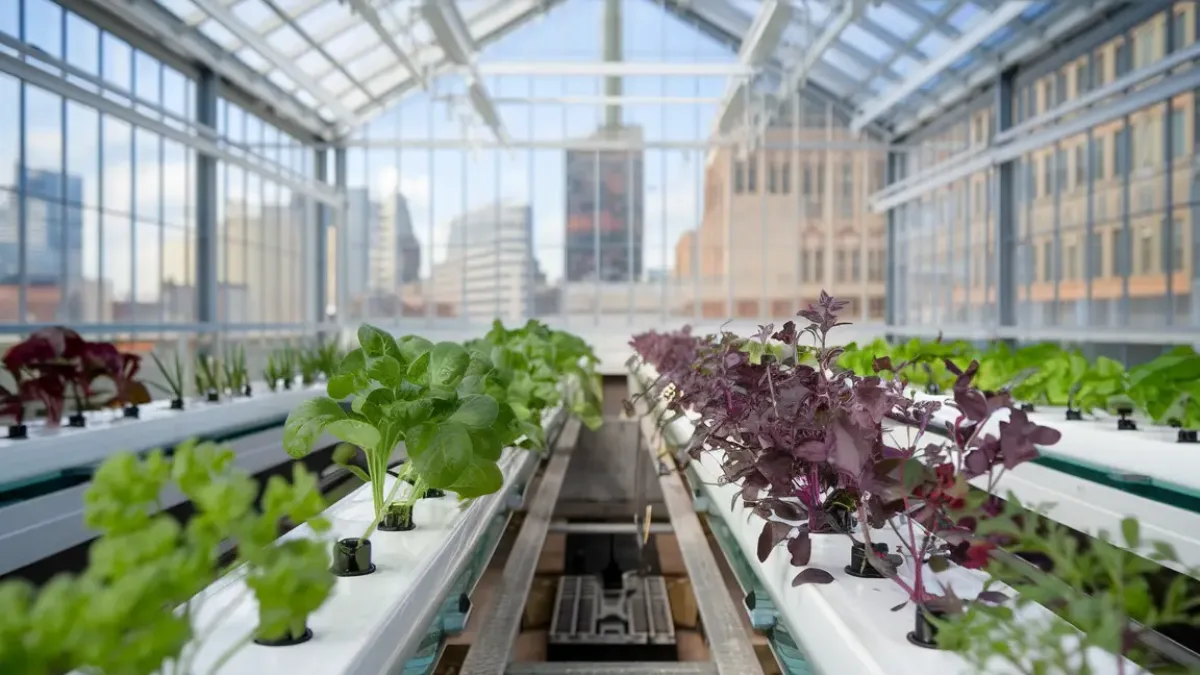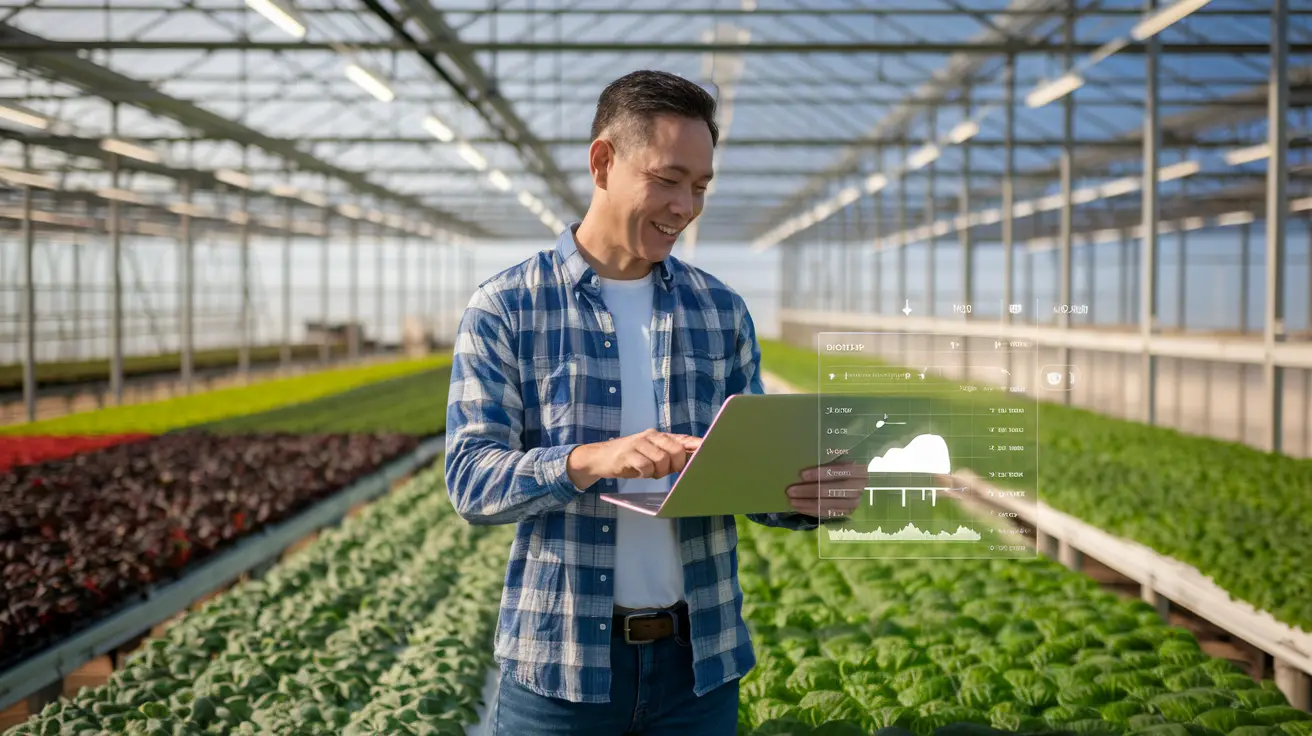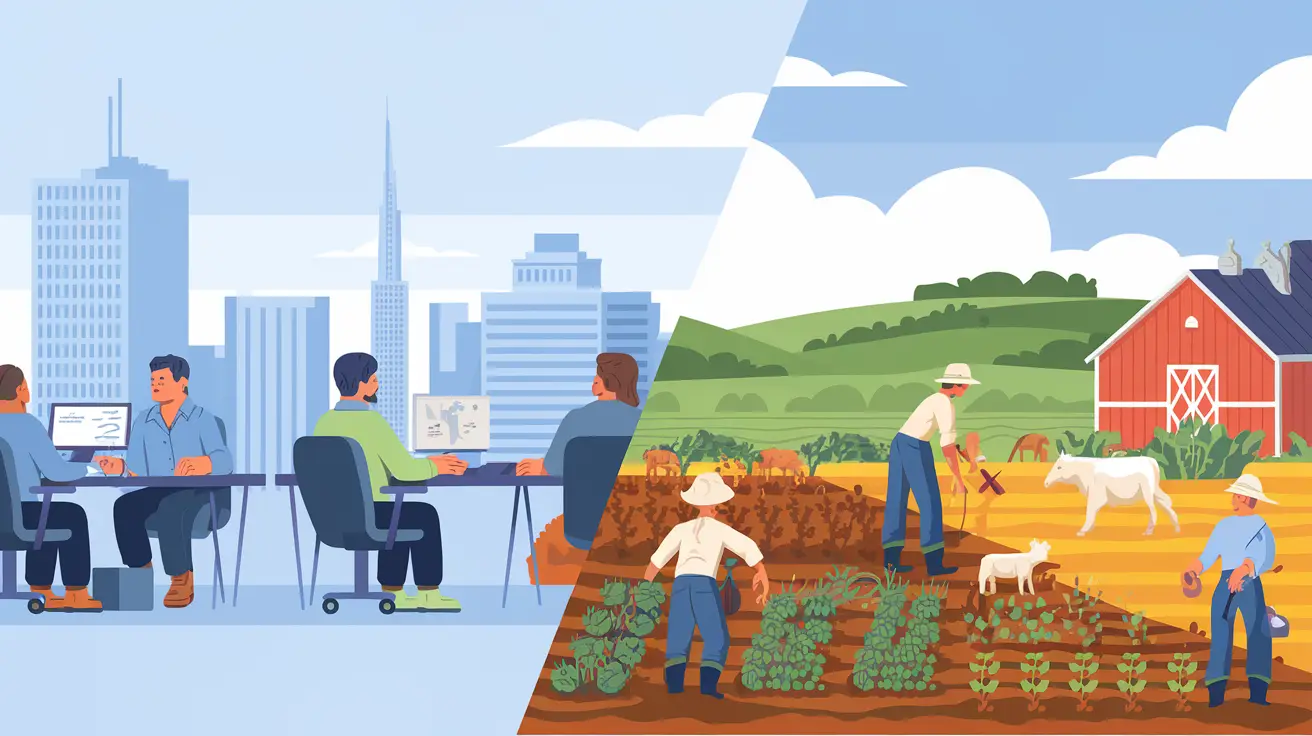Detroit, once known as the heart of the American automotive industry, has undergone a remarkable transformation in recent decades. At first glance, abandoned buildings and vacant lots may symbolize the decline of industry. But behind this facade lies a movement bringing new life and hope to the city: urban farming. Through the use of hydroponic systems, Detroit is experiencing a green revolution that benefits not only the environment but also the people and economy of the city.
What is Urban Farming and Why is it so Important for Detroit?
In recent years, urban farming in Detroit has grown significantly. What began with a few small plots has developed into a network of over 2,200 gardens and farms. People from all parts of the city and various backgrounds are using vacant land to grow fresh, healthy food that benefits not only themselves but also their communities. A sustainable, local food supply can help reduce reliance on imported food and improve food security – a critical advantage for many residents in a city where access to fresh fruits and vegetables is often challenging.
But it’s about more than just food supply. Urban farming strengthens the community, creates jobs, and helps to positively reshape the city’s image. Organizations like Keep Growing Detroit support over 25,000 residents with gardening and farming initiatives, promoting food sovereignty and sustainability. [1]
Hydroponics: A New Approach to Urban Farming
Hydroponics is an especially exciting method of urban farming that is gaining importance worldwide – and Detroit is showcasing how effective this technique can be in an urban setting. Hydroponics is a system where plants are cultivated without soil, instead using a nutrient-rich water solution. This approach brings many advantages:
- Space Efficiency: Hydroponic systems can be built vertically, making them ideal for urban areas with limited space.
- Water Efficiency: These systems use up to 90% less water than traditional soil-based agriculture.
- Year-Round Production: Controlled environments allow continuous cultivation, independent of external weather conditions.
Planted Detroit and Other Model Projects
A pioneer of hydroponic farming in Detroit is Planted Detroit. Established in 2018, the farm in the Islandview neighborhood operates a vertical hydroponic system that grows fresh herbs, baby greens, and microgreens for sale to local restaurants and markets. Planted Detroit’s vision is not only to provide fresh food but also to raise awareness of healthy eating and sustainable agriculture. Visitors can tour the system, learn how hydroponics works, and integrate this knowledge into their daily lives.[2]
Another impressive project is Vertical Harvest Detroit. In collaboration with Bedrock, a large hydroponic vertical farm is being established to produce approximately 2.2 million pounds of fresh vegetables annually. Over 70% of the products stay within a 100-mile radius, supporting the local supply chain.[3]
Cass Community Social Services, in collaboration with the Ford Motor Co. Fund, has also launched the Ford Freight Farm Container. This 40-foot container farm operates hydroponically, providing fresh vegetables to the community. This initiative not only highlights the desire to grow food locally but also the strong sense of community behind these projects.[4]
Challenges and Opportunities
Of course, there are challenges. The initial costs of hydroponic systems are high, requiring technical know-how and regular maintenance. Energy supply is also a challenge, as the controlled system requires electricity. Nevertheless, more and more companies and organizations in Detroit are recognizing the advantages of hydroponics and investing in technological advances to reduce costs and improve efficiency.
For many Detroiters, however, urban farming is more than just a means of food production. Working in the gardens, caring for plants, and being close to nature have a healing effect, helping to relieve stress and improve mental health. People who tend to their plants create something beautiful and useful, fostering a space for self-realization and satisfaction.
The Future of Urban Farming in Detroit
Today, Detroit stands at a turning point. Urban farming, and hydroponics in particular, offer a beacon of hope for the city’s future. By growing their own food and operating vertical gardens, people create a sustainable and green environment that goes far beyond food production.
In the coming years, Detroit could serve as a model for other cities facing similar challenges. It is inspiring to see how a new kind of urban agriculture is emerging from the ruins of an industrial society – agriculture characterized by community and cohesion.
Urban farming in Detroit is a story of resilience, innovation, and hope. The people here have shown that they have the ability to reshape and revitalize their city by transforming vacant land into green oases that nourish and strengthen the community.
Sources
- https://planetdetroit.org/2024/01/islandview-vertical-farm-back-in-business-with-new-partners/
- https://planteddetroit.com/
- https://www.agritechtomorrow.com/story/2023/06/bedrock-and-vertical-harvest-to-bolster-detroits-local-food-system-with-new-proposed-vertical-farming-infrastructure/14654/
- https://www.dbusiness.com/daily-news/bedrock-explores-development-of-vertical-farming-operation-in-detroit/



